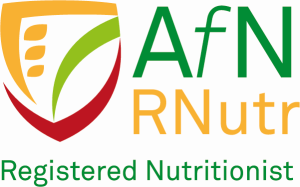Menopause affects everyone in the workplace, either directly or indirectly. Whether it’s the individual going through the menopause transition, or colleagues, family members, and partners, the impact is widspread.
In the UK, around 13 million women are currently navigating the menopause transition or are post-menopausal. Despite this, many women lack the essential information and support they need to help them through menopause. Over 90% of postmenopausal women were not taught about menopause at school and 49% did not feel informed at all about menopause. (1)
If your workplace is predominantly male, or mainly Gen Zs, ensuring your team has a good awareness of menopause is vitally important. In fact, it may even be more important, as the few team members who are approaching, currently going through the menopause transition or post-menopause may feel particularly vulnerable and isolated.
Menopause in the workplace
The number of women who will experience menopause whilst in employment is increasing. The average age women reach menopause is 51, although it typically occurs between 45 and 55 years. Symptoms of menopause tend to start several years before reaching menopause. Figures show us that women over 50 are the fastest growing group in the workforce.
It’s also important to note that women in in this age group are highly skilled, have lots of valuable experience and are role models for younger colleagues. Evidence also shows that around 1 in 6 people have considered leaving work due to a lack of support in relation to their menopause symptoms. (2)
Where to start?
Does your company have an effective menopause policy? Having a menopause policy in place can help create a more open, inclusive and supportive workplace culture. It’s crucial that colleagues have had the opportunity to input into the policy and are aware of the content.
A menopause policy can help everyone in the workplace understand what menopause is, how it can affect people and how to support individuals affected by it. More information is available from: ACAS, NHS Inform, and CIPD.
Your menopause policy can be enhanced by Including education and training on how diet and lifestyle can help women manage symptoms and reduce risk of osteoporosis and heart disease. Talking about food can be a useful way to open up conversations about menopause. In past session’s I’ve delivered, colleagues have discussed foods that trigger hot flushes, and foods that have helped alleviate them and reduce other symptoms. Such conversations could even inspire positive changes to the drinks and snacks provided during work meetings, or menu options in workplace canteens.
How food and nutrition can support menopause
Focussing on nutrition is a fundamental part of managing the menopause transition. A healthy and balanced, plant-rich diet is a good starting point for supporting menopause, and health in general. A diet that helps maintain balanced blood sugar levels, nourishes your gut microbes and keeps you well hydrated is key. Optimising your nutrition according to your individual needs and symptoms experienced can help support a smoother menopause transition.
By promoting good nutrition, businesses can support employees in managing menopause symptoms while reducing the risk of long-term health issues like osteoporosis and heart disease. A healthy diet plays a key role in managing these challenges, supporting energy levels, and promoting physical resilience, contributing to a healthier, more productive workforce.
I’m Dr Laura Wyness, an experienced AfN Registered Nutritionist and author of Eating Well for Menopause.
Looking for a speaker to share the science and practical dietary advice to increase awareness and understanding of nutrition and menopause? Check out my Menopause nutrition support for workplaces, or get in touch.











